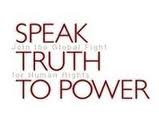
On November 6th, America will go to the polls. What are the dos and don’ts governing non profits organizations who want to get involved in election related work?
According to the Council of Nonprofits “501(c)(3) organizations are absolutely prohibited from directly or indirectly participating in, or intervening in, any political campaign on behalf of (or in opposition to) any candidate for elective office. Contributions to political campaign funds or public statements of position (verbal or written) made on behalf of the organization in favor or in opposition to any candidate for public office clearly violate the prohibition against political campaign activity. Violating this prohibition may result in denial or revocation of tax-exempt status and the imposition of certain excise taxes.”

What Can Nonprofits Do?
(Council of Nonprofits)
Know the law. Federal law, as interpreted by the IRS, still allows charitable nonprofits to engage in a lot of different activities relating to elections, such as “certain voter education activities intended to encourage people to participate in the electoral process, such as voter registration and get-out-the-vote drives…if conducted in a non-partisan manner.” Indeed, to fully advance their own missions, charitable nonprofits need to appreciate the many reasons why they should get more involved in election-related work, and how easy it is to do.
Participate on a nonpartisan basis in elections involving candidates. Although charitable nonprofits may not endorse or work for or against individual candidates, the IRS recognizes that charitable nonprofits may engage in voter registration, education, and participation efforts if done neutrally on a nonpartisan basis (Revenue Ruling 2007-41 I.R.B., June 18, 2007). For example, charitable nonprofits “may encourage people to participate in the electoral process through voter registration and get-out-the-vote drives, conducted in a non-partisan manner. On the other hand, voter education or registration activities conducted in a biased manner that favors (or opposes) one or more candidates is prohibited.”
Campaign for/against specific issues (e.g., legislation, initiatives and ballot measures). Charitable nonprofits are free to engage in campaigns regarding issues. Any expenditures of money (including for staff time) are required to be reported on your 990 as a lobbying expenditure.

What Issues Are Important To The HIV Community?
– Affordable Care Act (healthcare reform)
– National HIV/AIDS Strategy
– Ryan White Care Act
– AIDS Drug Assistance Program (ADAP)
– Housing Opportunities for People with AIDS
– Syringe Exchange Programs
– Routine HIV Testing
– Funding for HIV programs and services (Federal, State, County, & City)
– Criminalization of HIV Non-Disclosure
– HIV Cure Research
– Support for The Global Fund
Other Important Issues
– Poverty
– Stigma and DiscriminationMedicaid
– Job Creation
– Hepatitis
– Sexually Transmitted Diseases or Infections
– Racial Justice
– Social and Economic Justice
– LGBT Rights
– Women’s Rights
– Access To Treatment
– Foreign Policy
– Other?
Talk about the issues that are important to your organization. Form coalitions with like minded organizations to work collaboratively.

Do you know where your elected officials stand on the issues most important to your agency and your constituency? This is not the time to put your head in the sand!
We are often disappointed when our political leaders do not stand up for the issues most important to our agencies/movement. Yet what about our leadership? As leaders in the HIV/AIDS movement, we also need to stand up and be counted. Our agency, our constituents and our communities take their cues from us. If we are not willing to stand up and speak truth to power, why should they?

When was the last time you stood up, no matter the consequences? It’s so easy to ask, but so difficult to do. As leaders, we represent more than just our individual opinions. When we speak, it can impact our staff, our funding, and our ability to serve people with HIV/AIDS. Often we have more at risk and that’s why it’s so important.
I am frustrated by the fair weather friends who wait to see how we’re treated before they stick out their necks. They’re usually the first to point out our mistakes, but rarely take the risk to put their reputation/agency on the line. Can you imagine what would happen if all the HIV/AIDS leaders stood up and spoke their truth to power? We could be a force that can change the world. In actual fact, we were that force back in the early days of the epidemic. We have the tools to bring an end to this epidemic, but it will require all of us standing up and working to achieve that goal. What do you think? Are you willing to jump into the abyss? NMAC is here to help you stand up and speak out, both through our efforts to develop leadership and build capacity, as well as through our annual United States Conference on AIDS, which for the first time this year, will include a Summit to End AIDS in America. United, we can start translating this vision into reality! Let’s end AIDS, together!
